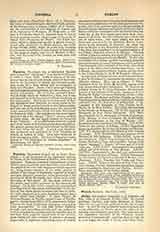

Figueroa, FRANCISCO DE, a celebrated Spanish poet, surnamed “the Divine”, b. at Alcala de Henares, c. 1540; d. there, 1620. Little is known of his life, except that he was of noble family, received his education at the University of Alcala, and followed a military career for a time, taking part in campaigns in Italy and Flanders. From a very early age Figueroa showed unusual poetical talent, and his poems are full of fire and passion. His work first attracted attention in Italy, where he resided for a time, but it was not long before he had earned a brilliant reputation in his own country. Following in the footsteps of Boscan Almogaver and Garcilaso, to whose school he belonged, he wrote pastoral poems in the Italian metres, and was one of the first Spanish poets who used with much success blank verse, which had been introduced by Boscan in 1543. His best-known and most highly praised work is the eclogue “Tirsis”, written entirely in blank verse. He was highly praised by Cervantes in his “Galatea”. It is unfortunate that but a small part of the works of this brilliant poet have reached us, the greater portion having been burned by his direction just before his death. A small part, however, was preserved and published by Luis Tribaldos de Toledo, at Lisbon in 1625. They were reprinted in 1785 and again in 1804. The best of Figueroa’s works appear in “La Biblioteca de Autores Espanoles” of Rivadeneira, vol. XLII.
VENTURA FUENTES

